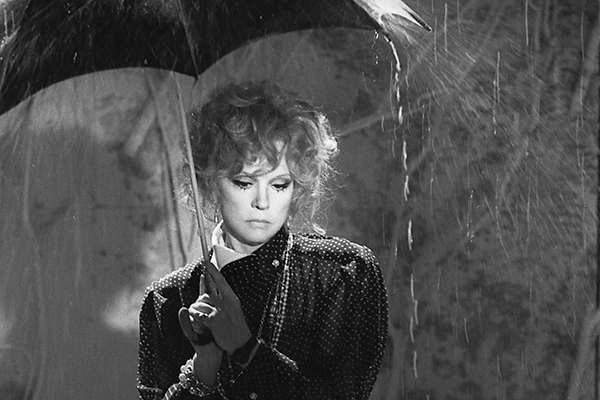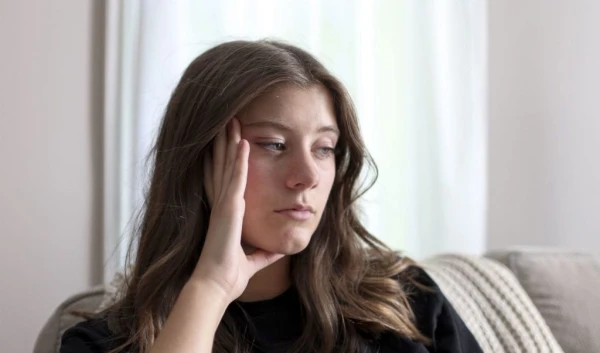
She even sang in prisons.
Lyudmila Gurchenko (November 12, 1935, Kharkiv — March 30, 2011, Moscow) was, is, and will forever remain unique. Her uniqueness and individuality manifested not only in films but also in her very appearance, where fragility, femininity, and vulnerability astonishingly combined with an unyielding inner strength, always palpable in both her characters and in herself.
Lyudmila Markovna possessed a rare musicality and plasticity by nature; she was a virtuoso with her voice, a refined gesture, which only a few of our actresses, such as Lyubov Orlova, and among foreign film divas — Marlene Dietrich, Barbra Streisand, Shirley MacLaine, Liza Minnelli, could wield with such natural grace. Lyudmila Markovna spoke respectfully of these great actresses, without imitating any of them, while knowing her own worth.
Eldar Ryazanov, who discovered the sparkling talent of young Lyusya Gurchenko in the film "Carnival Night," which was watched by 50 million viewers in its first year of release, rightly believed that actresses like her are born once every hundred years. Gurchenko herself, who could sing, dance, tap dance, play the accordion, bayan, guitar, and piano, and stylishly wear both vintage and trendy outfits, believed she was born for musicals. However, the musical film genre was in decline during the years when her star shone brightly, and such films appeared rarely. One can recall "The Girl with the Guitar," "The Straw Hat," "Heavenly Swallows," "The Magic Lantern," "The Tobacco Captain," "The Secret of Her Youth," and a couple of other films where Gurchenko shone in different years. But how can one build a repertoire on such rare offerings?
Fortunately, Gurchenko realized in time that with a shortage of musical films, she might simply be left without work. And she managed to "reformat" herself. In addition to the trailing "musical" and comedic roles, Gurchenko starred in understated black-and-white films such as "Worker's Settlement," "Baltic Sky," "A Bridge is Being Built," and gradually grew into a great dramatic actress. Over time, she lived through and portrayed on screen piercingly bitter, time-broken, yet in their own way happy female destinies in such films as "Old Walls," "Twenty Days Without War," "Five Evenings," "Siberiada," "Flights in Dreams and Reality," "A Train Station for Two," and "The Favorite Woman of Mechanic Gavrilov" — masterpieces of our cinema that elevated Gurchenko to the very top of the acting Olympus.
However, Lyudmila Markovna amazed her admirers not only with her acting talent but also with her literary gift, which was vividly manifested in her handwritten books "My Adult Childhood," "Applause," and "Lyusya, Stop!".
No one among our actors and actresses, I dare say, has written so vividly, brightly, and confessionally about their wartime childhood, beloved parents, and the beautiful yet torturous profession. Perhaps only Nonna Mordyukova, an equally significant creative figure in Russian cinema of the second half of the 20th century.
Finally, it must be said about Lyudmila Gurchenko's rare gift to create not only roles but also her own destiny — despite the misfortunes and merciless circumstances that befell her in full measure. A transparent girl from malnutrition, who survived the German occupation in Kharkiv, and then came to enroll in VGIK with her father's bayan and seemingly indelible Ukrainian accent, she experienced both the dizzying rise to fame that followed "Carnival Night" and the bitterness of many years of oblivion. And the audacity of film generals who, as the actress admitted, tried to get under her skirt. And the treachery of the public, which easily forgets and betrays its former idols. And the emotional traumas, and physical injuries — including a broken leg while filming "Mama," when the bone was shattered into two dozen fragments.
Gurchenko went through all these trials without complaining, without cursing her acting fate, but working, observing, and listening to life and herself. When there were no roles in films, she acted in the theater. She parted ways with the "Sovremennik" and later the Theater of the Film Actor — she began to perform more frequently in concerts. She sang in housing offices, factories, and mines, even in prisons — just to work, just to give an outlet to the creative energy that boiled within her. In the breaks between rehearsals and expeditions, she learned new songs, released records and discs, wrote books and music, appeared on television, acted in productions, and hand-sewed exclusive designer dresses — by the end of her life, she had accumulated more than two hundred...
And she always threw herself into a new film as if into fire (this is her own comparison), burning and melting herself in each role, avoiding repetition of what she had already done, the habitual playing on autopilot. "For a good role, she could set her house on fire; she would bring the kerosene herself, then there would be a trial, remorse, but she would play the role," said Nikita Mikhalkov about her. And when, after the film "Old Hags," roles became almost non-existent (the "unfilmable" age approached), Gurchenko herself took on the film "Colorful Twilight" as a director and composer. And at 75 years old, she directed it! This is perhaps the most belated and unexpected debut in world cinema.
"It was not easy to work with her," playwright Viktor Merezhko, who wrote several scripts for Gurchenko, told me. "She was unpredictable in words, assessments, and behavior. One could never foresee how she would react to a director's remark. She could sharply dismiss it or even send someone away using foul language. It happened that while working with young directors, she seized power on the set, as it was during the film "Applause, Applause" based on my script, and began to direct the film to suit herself.
Undoubtedly, Gurchenko was obsessed with work. She did not allow herself to play half-heartedly. But sometimes her searches led to eccentricity, to an impressive external drawing. And sometimes it is necessary to deeply hide it to reveal the inner state of the heroine. Lyusya was a natural diamond. But every diamond needs cutting. She respected and feared Viktor Tregubovich, who rediscovered her at 38 in "Old Walls," the Mikhalkov brothers, Ryazanov, Menshov, Roman Balayan, and Alexei German, who firmly held her in his hands, managed wonderfully with her strong temperament. It is no coincidence that Gurchenko played her best roles with them."
To Merezhko's words, it should be added that Gurchenko's personal life was also complicated. She had no actress friends; she considered them rivals. She herself called herself a bad mother; her strength and emotions were not enough for her only daughter. "Either the profession or the children," she said, choosing the former. Gurchenko considered herself a monogamist but was married six times. Among her partners were director Vasily Ordynsky, screenwriter Boris Andronikashvili, singer Joseph Kobzon, actor Alexander Fadeev, and musician Konstantin Kupelevich. Her passionate heart found peace in marriage to producer Sergey Senin, with whom she lived until her death, remaining an icon of beauty and style even in her eighties. Her waist, just like during the times of "Carnival Night," did not exceed 48 centimeters.
"They say she played the role of a star even in life?" I asked Sergey Mikhailovich on occasion.
"It's all nonsense," he replied. "Yes, she was fit; she did not allow herself to slack off. She always looked good. She welcomed guests beautifully. But at the same time, she was an ordinary woman — with her weaknesses, with a good 'common people's' appetite. She loved dumplings, fried potatoes, buns, bread generously spread with butter, tea with six spoonfuls of sugar. These are all echoes of her hungry Kharkiv childhood. What is star-like about that?
The other thing is that when she immersed herself in a big role, she carried a new image within her, like a pregnancy. When she came home, she could not immediately switch to everyday life. She held an internal dialogue with her character. But this was not a manifestation of star aloofness — it was a huge creative concentration, which I delicately tried not to disturb during all twenty years of our life together."
Through the efforts of Sergey Senin, a museum was created in the apartment at Patriarch's Ponds, where Gurchenko lived in her last decades. Everything remained as it was during the life of the great actress. Her photographs on the walls, concert outfits and designer shoes in the wardrobe, exquisite jewelry, a collection of paintings, clocks, lamps, porcelain dishes, uranium glass products, perfumes in the bathroom, her favorite robe and slippers by the bed. It seems the actress has just stepped out for filming and will soon flutter back into her cozy, lived-in home space. But Gurchenko has been gone for almost 15 years. She left, having managed to express herself and her era.













Leave a comment